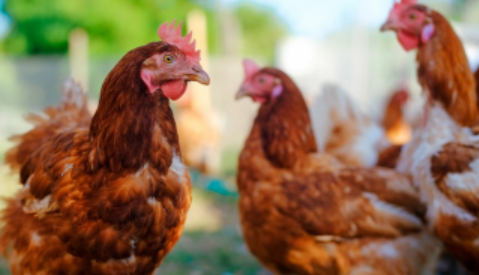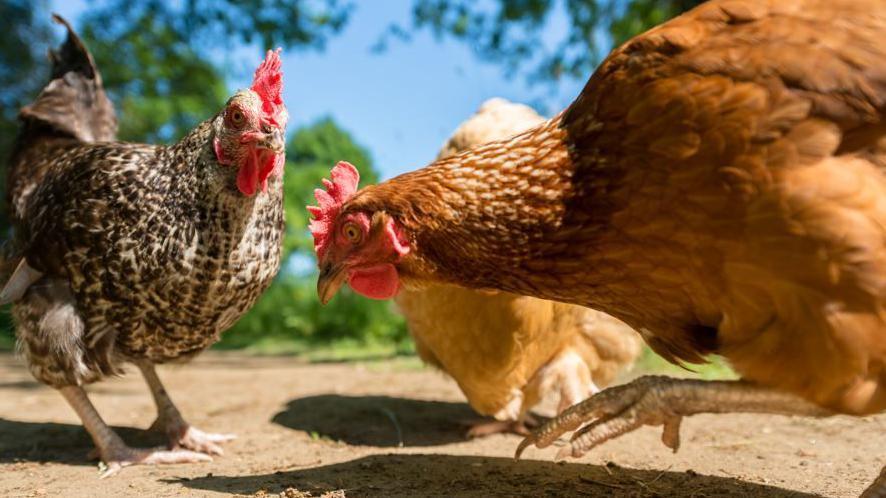Study measures value of animal welfare to shoppers

University of Reading researchers say its study could change how animal welfare policies are evaluated
- Published
A new tool for measuring the economic value of farm animal welfare improvements has been developed.
Researchers from the University of Reading said it could transform how supermarkets, shoppers and the government evaluate animal welfare policies.
Professor Richard Bennett has created a system that assigns comparable welfare scores to different farming systems, linking them to what UK households are willing to pay.
He said: "For too long, animal welfare has been difficult to factor into policy decisions because we lacked a standardised way to measure its value."
The method uses a 0-100 welfare score, where zero represents extreme suffering and 100 denotes the highest achievable welfare.
An expert panel of 13 independent animal scientists was asked to assess various farming systems.
They considered factors including physical health, mental wellbeing and opportunities for natural behaviours throughout an animal's life, from birth to slaughter.
More from Berkshire
Dad 'super proud' of daughter, 10, for CPR rescue
- Published30 October
England's horror film settings that 'make the flesh creep'
- Published30 October
Largest robotic surgery training centre opens
- Published30 October
Then they surveyed more than 3,000 UK households to determine what they would pay for welfare improvements.
It showed people value animal welfare improvements more highly when current conditions are poor, with willingness to pay declining as welfare standards rise.
The study suggested households would collectively pay £496m per year to move the 21% of hens in cages to free-range, equivalent to 20p per egg.
Giving chickens more space per bird would increase welfare scores from 38 to 47 and would benefit birds in their final week before slaughter, at a value of £997 million annually, or 92p per bird.
The survey found 85% of respondents agreeing there is a moral duty to safeguard animal welfare, while 86% supported regulation to improve welfare levels across all farm animals.
The research was commissioned by the Department for Environment, Food and Rural Affairs (Defra) and conducted at the School of Agriculture, Policy and Development at the University of Reading.
Get in touch
Do you have a story BBC Berkshire should cover?
You can follow BBC Berkshire on Facebook, external, X (Twitter), external, or Instagram, external.
Related topics
More like this
- Published28 April

- Published20 July

- Published19 July
